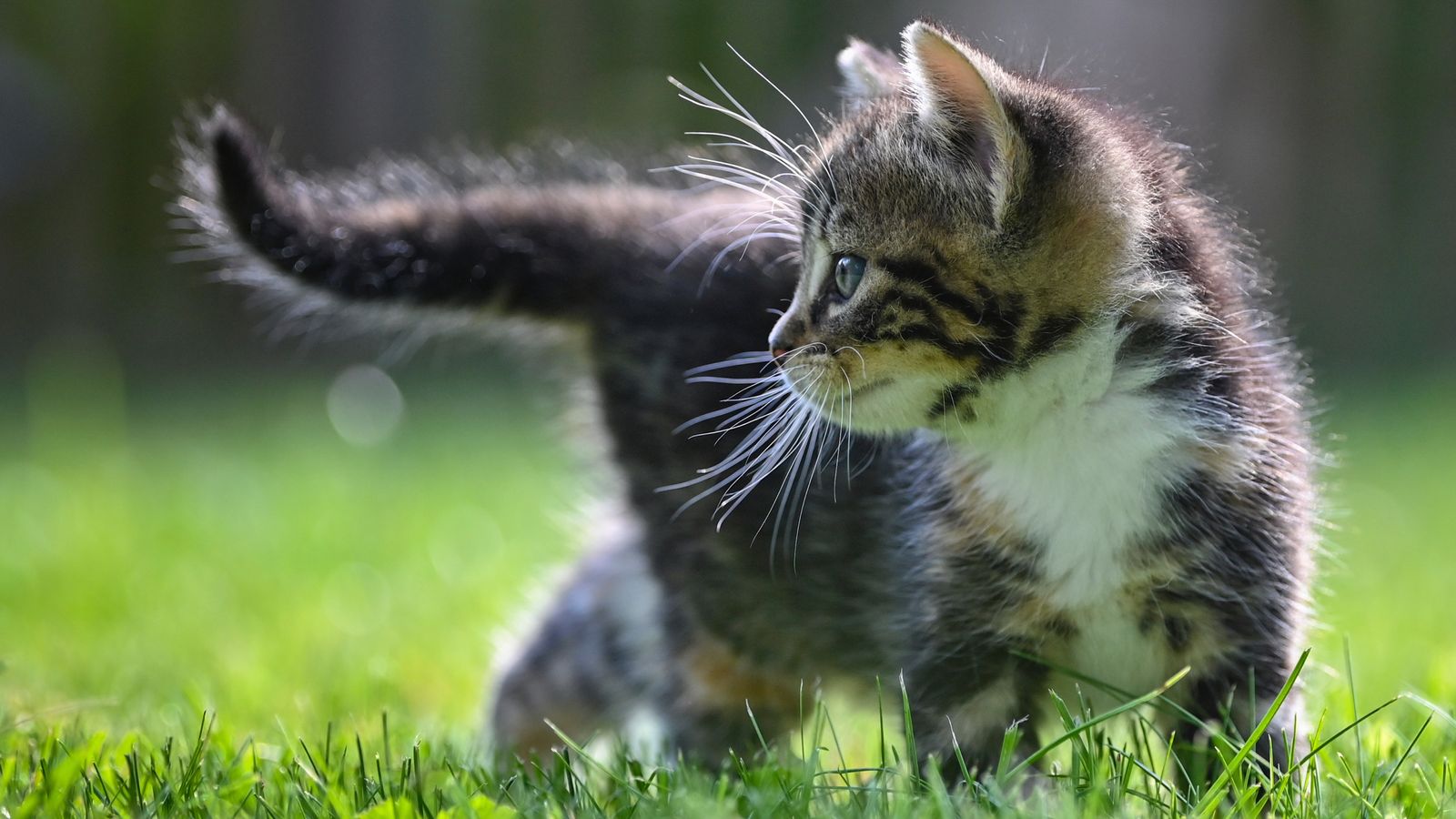Several cats in Poland have died from bird flu – amid advice from an EU agency to owners to keep their pets indoors.
Forty-six cats and one captive caracal – a wild cat sometimes known as the desert lynx – were tested and 29 were found to be H5N1 positive, a report from the World Health Organisation (WHO) outlined.
Eleven cats died and a further 14 were reported to have been euthanised after developing viral symptoms including difficulty breathing and bloody diarrhoea.
The EU’s European Food Safety Authority has urged people to keep their pets indoors.
The agency said: “It is recommended to avoid exposure of domestic cats and dogs, and in general carnivore pets, to dead or diseased animals.”
It said that cats could be “confined” indoors in areas where the circulation of the disease in wild birds had been confirmed and that dogs should be kept on leashes as a precautionary measure.
Humans in Poland are currently assessed as at low-risk of contracting the virus, but cat owners and those come into contact with cats carrying the disease have been determined as at moderate risk.
Aberdeenshire: More than 1,000 seabirds dead in suspected avian flu outbreak in Scotland
Hundreds of dead birds wash ashore as Scotland’s avian flu task force on ‘high alert’
Two poultry workers test positive for bird flu after contact on infected farm
However, there are as yet no reported symptoms from those who have come in contact with H5N1 positive cats.
Read more:
Arrest after cat thrown off cliff
Cats as good as dogs at helping us relax
The source of exposure of cats to the virus is still unknown as investigations continue, though some possibilities have been put forward by the WHO.
Please use Chrome browser for a more accessible video player
Cats may have eaten infected birds, come into contact with them or their environments, or have consumed food contaminated with the virus.
The report is a first where high numbers of cats have been infected with the flu over a wide geographical area within a country. Sporadic cases of feline H5N1 infection were previously documented after they were in close contact with infected birds or ate their infected meat.
The virus is similar to a recent outbreak in Poland which circulated in wild birds and subsequently infected poultry.
In the UK, two new cases of bird flu were detected in poultry workers after they came into contact with infected birds, according to the latest update from the UK Health Security Agency (UKHSA).
In Cyprus, around 300,000 cats – both domestic and stray – have died of feline coronavirus since January, which could be “catastrophic” if it were to reach British shores.





